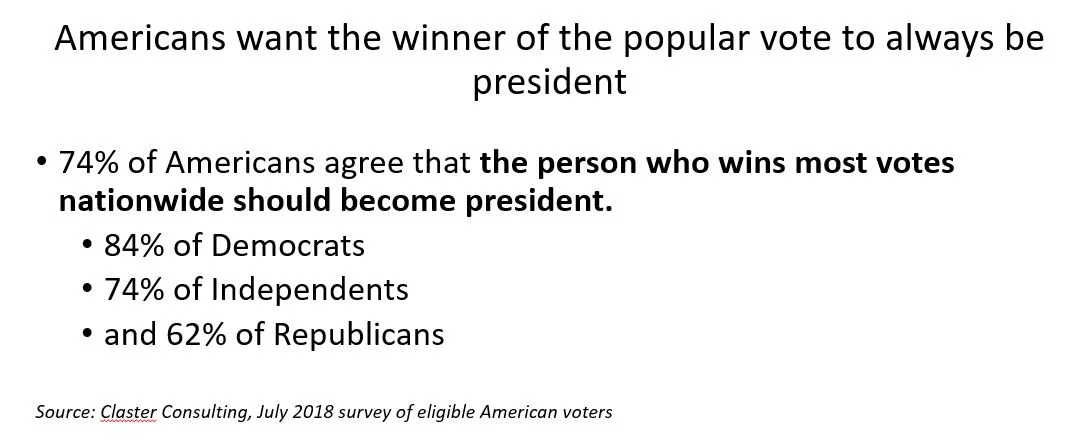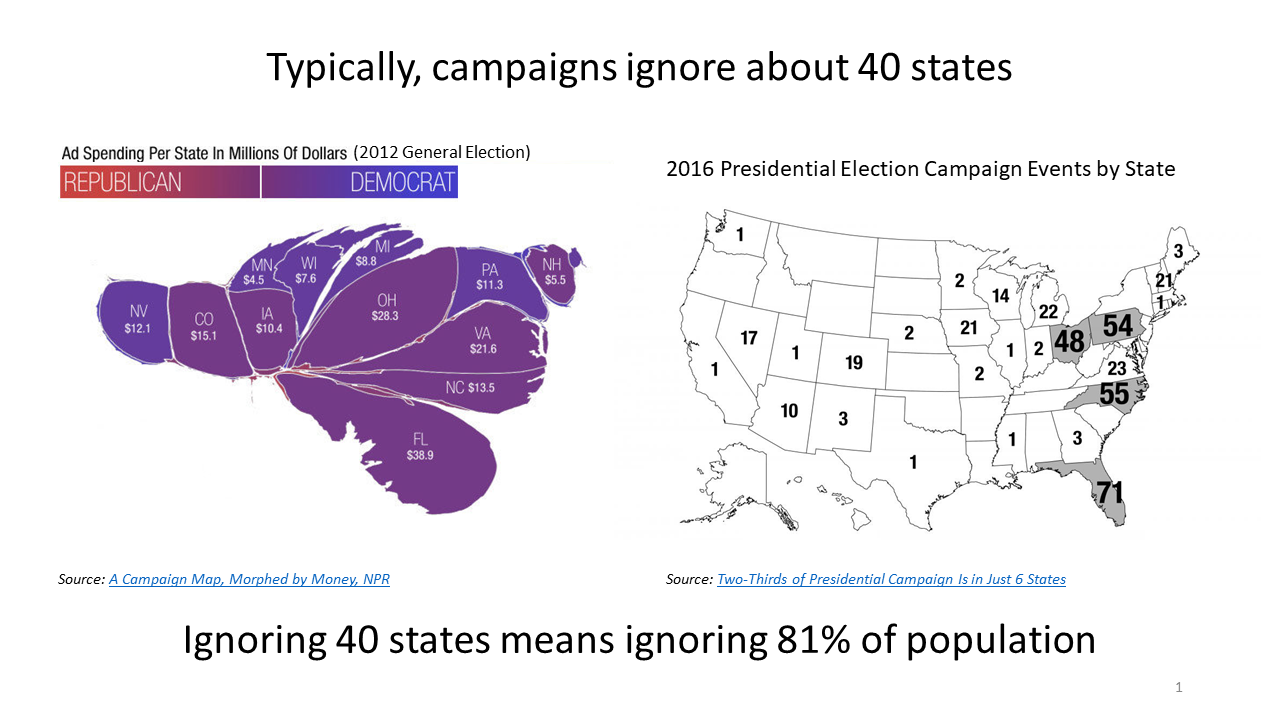Washington Post fact-checkers must be up in arms about the howlers in this Gary Abernathy article, October 25, 2018. Or maybe it’s the in-house logicians who are crying into their keyboards.
Item 1: He wrote: “American history resists the notion of a majority fully imposing its will on a minority.” He meant, presumably, that throughout history most Americans repeatedly have been denied the opportunity to have a government reflect their wishes. His statement is the principal reason why the person who wins the most votes in the whole country should always become the president.
Item 2: He claims Democrats would “almost assuredly be defending the [presidential selection] system” if their candidates had lost the popular vote but won the Electoral College. Apparently, he defends the system for the same utterly self-interested reason; namely, his preferred candidates used it to deny the will of the people. This also is an argument for changing to a democratic method of choosing the president.
Item 3: He asserts that the United States is a “collection of individual states.” Abraham Lincoln in his first inaugural address quashed this specious assertion: “The Union is much older than the Constitution. It was formed in fact, by the Articles of Association in 1774. It was matured and continued by the Declaration of Independence in 1776. It was further matured and the faith of all the then thirteen States expressly plighted and engaged that it should be perpetual, by the Articles of Confederation in 1778. And finally, in 1787, one of the declared objects for ordaining and establishing the Constitution, was "to form a more perfect Union."’
Item 4: He says the “electoral college exists to protect” the “social and geographic interests” of states. People have “social and geographic interests” and they are best protected when their communities, geographic, demographic, religious, ethnic, familial, or even tribal, can vote with each vote counted equally for the political preferences that their interests lead them to have.
Item 5: “Our nation settled on the electoral college” as part of “protecting and valuing each state.” Actually, the slave state-small state alliance demanded that the anti-democratic, inequitable advantages they obtained in the compromise over the composition of the Senate and House be perpetuated in the method of choosing the president. The slave states did not want a chief executive who would oppose the expansion, or maintenance, of slavery. What was “valued” was, principally, slavery.
Item 6: “States are largely awarded electoral votes commensurate with their population.” So he claims, and then he compares West Virginia to California, noting that California has 20 times as many people and only 11 times as many electors. I do not think “commensurate” means what Abernathy thinks it means.
Item 7: If the president were the person who won the national popular vote, then a “disproportionate majority of voters from the largest states” would be “imposing their will on the more vulnerable minority in smaller states.” There are many things wrong with this sentence, but I conclude with noting only three: (i) a majority is not “disproportionate” under a popular vote system; it is proportionate to the votes cast; (2) under the existing, anti-democratic system the “vulnerable” minorities in every state are “imposed” upon because their votes for the runner-up are discarded, meaning never counted with like-minded voters in other states possibly to form a majority opinion; (3) no candidate seeking a national win would ignore voters anywhere, because campaigns are not that dumb, whereas in the current system the two major parties do not campaign in about 40 states, with more than 80% of the population.




